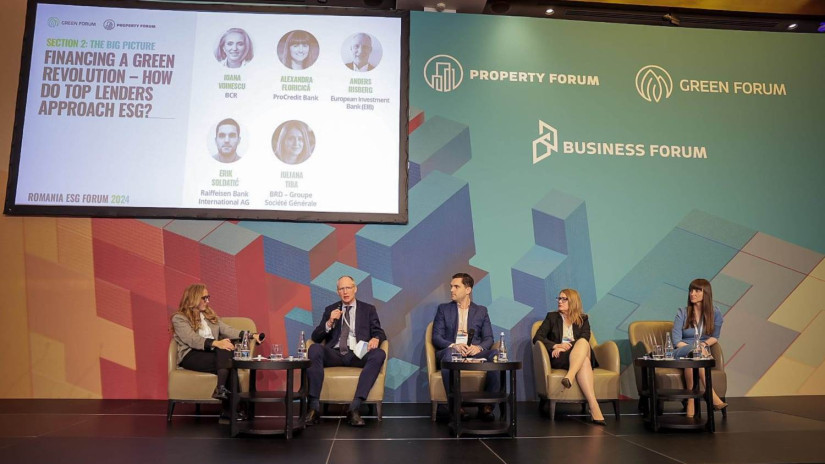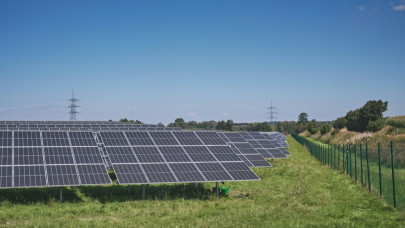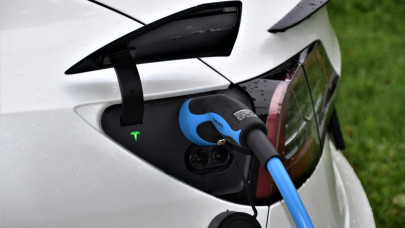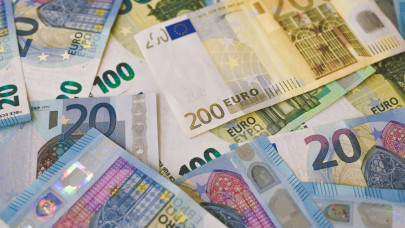„One might think that the renewable sector is the one which acts as a front runner. But if we look at the end, we use as a proxy, for example, the EU taxonomy. By surprise, we will see that the real estate sector is acting as a first mover in this area. The real estate sector has more than 87% of activities eligible under the EU taxonomy, which is a very high level if we compare it with the average, which is below 30%. But if we go beyond the eligibility and look at the alignment side, so then the real estate has a high level, however, the renewable energy sector is the one more far beyond the average. I gave these examples to say that these sectors somehow acted as front runners. Real estate started with different certifications for their developments or assets in operations, like BREEAM. These were the initial steps taken by sector actors toward sustainability. And after these two sectors, I would say that, of course, the transportation sector is catching up, especially as the infrastructure for electrification is quite critical. I would also say that last but not least, the public sector is taking good steps concerning sustainability. And I think that somehow it is their role to set the tone for the economy, to see that the sustainable development is somehow to be included in the business strategies of the companies”, said Iuliana Tiba, Director, of Environmental Social and Positive Impact Financing at BRD – Groupe Société Générale.
At the same time, Anders Risberg, Head of the Division of Corporate Lending CSEE at the European Investment Bank (EIB) said that the energy sector needs enormous amounts of investments.
„It's difficult to answer the question about front runners, but what I can say from the EIB perspective and in my perspective, the energy sector needs enormous amounts of investments. If it's the front runner by needing to comply or by actively propelling themselves forward, by their own will, doesn't matter. We've seen both in generation transmission and distribution. Renewable energy is being developed in Romania, but we've also seen that transmission lines don't necessarily go to where the energy is. So there's a huge need for investment there. We also saw during last year logistic centres coming to us to finance rooftop solar panels. Not necessarily because the logistics centre companies themselves wanted to green themselves, but their clients. There's huge demand from clients wanting to rent space where there is green electricity. I think the public sector has an important role to play. If we take the European Union as an example. Yes, they are not they are overseeing this when it comes to regulation, but they were among the first, they were pioneers in terms of launching climate as a risk that was global and very important to address”, mentioned Anders Risberg.
In this case, to support industries that want to become greener transitions toward a more sustainable economy are needed.
„And here, we have to observe the ESG risks, avoid them, and of course, also take advantage of opportunities. Banks can help this transition towards net zero in two ways. The first is that they should reduce their financing emissions, which are significant contributors to carbon footprints. This is done by measuring the carbon emissions of their portfolio and setting targets, then developing guidelines, models, and strategies to reduce those and to achieve those targets. The second thing that banks could also do is offer products that would motivate some sustainable activities like all sorts of sustainable bonds and loans, but this can also be advisory services when it comes to some legal frameworks and risk management solutions. We have all sorts of products that can eventually help our clients store this transition”, stated Erik Soldatić, Expert Product Manager | Sustainable Finance at Raiffeisen Bank International AG.
Regarding the green bonds, in 2022 there was a spike in interest rates, which reached its peak in October, and November last year, and this affected the sustainable bond market. „However, for the first quarter of this year, things are looking really good, because there were roughly 300 billion euros of sustainable bonds issued, which is in line with the first quarter of 2021, which was reported as the best year so far when it comes to the sustainable bond issuances. We can expect that this year, we might hit that 1 trillion mark, again, hopefully”, also said Eric.
In terms of how the SMEs perceive ESG and if they are ready to adopt these types of solutions, Alexandra Floricica, Head of Sustainable Development at Procredit, said that small and medium enterprises are quite well known for the fact that they are met in the resource-intensive sectors.
„I cannot talk for all the SMEs within the country. However when it comes to our clients, let's say that we used to have this type of direction many years ago and the clients who have stayed with us over the years are accustomed to our questions regarding environmental aspects, social aspects and the government's when it comes to the capacity building with us as a bank, which addresses mainly small and medium enterprises, definitely we need to have an eye on intend to keep people at high levels. I will say that, yeah, these small and medium enterprises are quite well known for the fact that they are met in the resource-intensive sectors. So this means that we also need to be able to keep the contact with them to keep the communication going with them, not just on where they are now, but where they want to reach. And this is, also, let's say, a target for us that by 2030, we want to engage as many clients as possible in these discussions for them to be able to measure their emissions to set their targets, and to also start investing in such a way that their emissions can be reduced. We cannot do this only at the level of the individual, but rather, we need to have some kind of framework set it. So that's why let's say that from the level of the group, how we are doing it, we have tried to get in touch with as many associations and as many mechanisms as possible that can guide us through this process. That's why we are part of the Task Force on climate-related disclosure disclosures”, added Alexandra Floricica.














